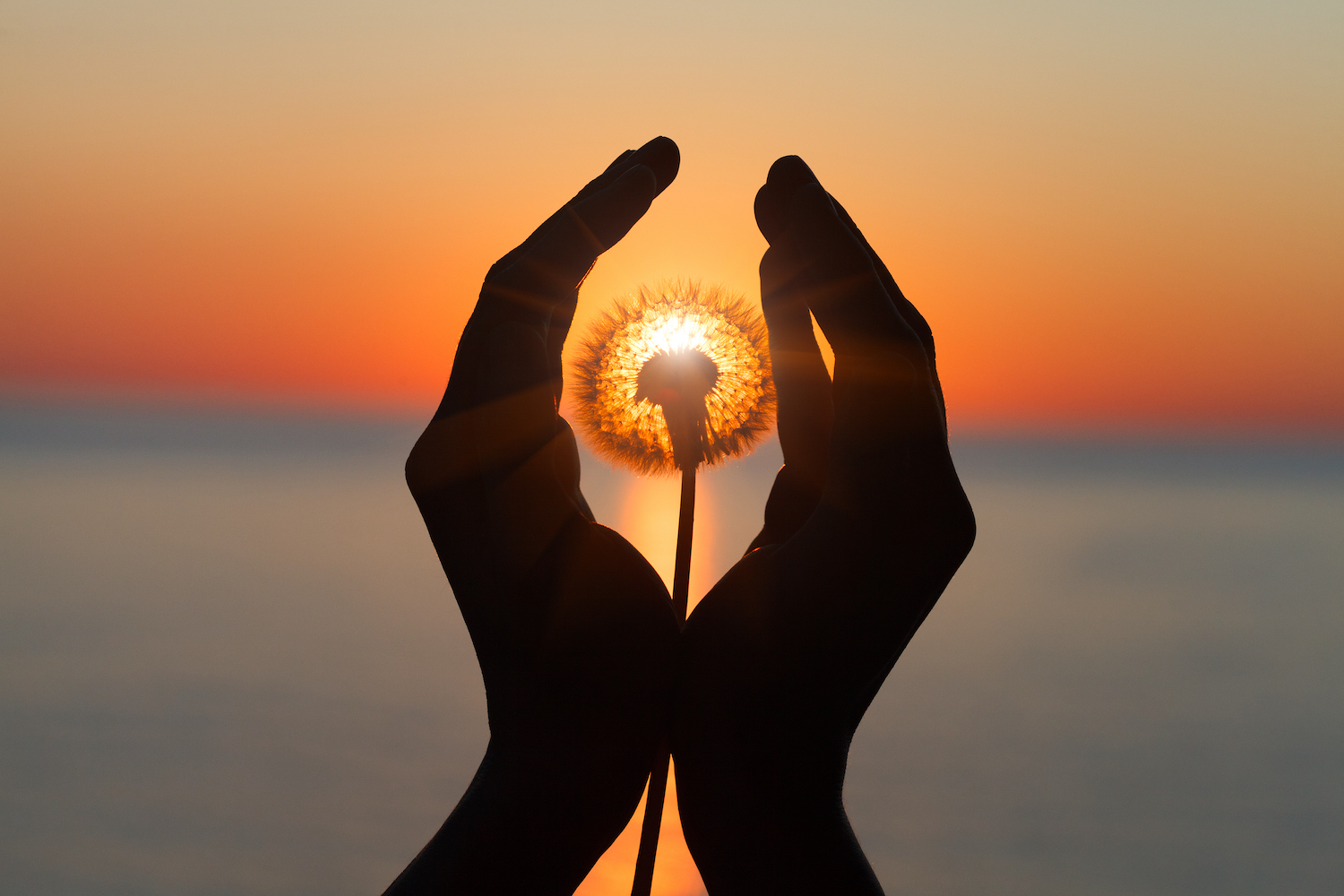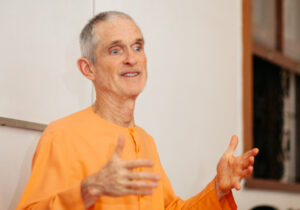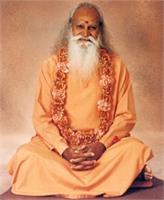The Three Secrets of Spirituality
by Ekachakra Prana Das
A Personal Journey
All at once, bright lights and tripod cameras turned to face me. A devotee swung the boom mic; it was time to speak. A large group of university students were in attendance, curious about the spiritual tradition practiced in this unassuming building at the edge of campus. As a visiting monk and traveling musician, they wanted to hear my story. I opened with a brief meditation to harmonize everyone.
First, deep breaths and body awareness, simply being. Then, finding the heart, holding a loved one there, feeling. Then focusing on the mind, asking the big questions, “Who am I? What do I really want?” Knowing. Lastly, finding the voice and chanting the mantra AUM, all together in a beautiful vibration. Doing. We exist on all these levels, and more. Yoga and meditation help bring us to a state of wholeness. The consciousness of the room changed drastically in less than three minutes.
Then, I told my story. Raised Catholic, confused by unanswered questions. Studying the world’s religions and philosophies. Building a business, traveling as a musician, teaching yoga, writing. Meeting my mentor at a Kirtan in Nashville, and receiving the Vedic wisdom literatures. Diving deep into this comprehensive, beautiful, scientific exposition of the meaning and goal of life. And now, as part of an international society, traveling to centers across the world teaching, singing, and serving.
Everyone got a Bhagavad Gita, Krishna’s song. I explained how so many great personalities have found inspiration in these pages – Emerson, Thoreau, Gandhi, the Beatles, MLK Jr, Einstein, and many more. I told them how this jewel of wisdom has been translated hundreds of times into English, and how Prabhupada’s version has been most accepted in major universities, as he faithfully delivers the essence of Krishna’s message. We talked about karma, transmigration of the soul, the equality of all living beings, and different types of yoga and meditation. We talked a lot about God.
I shared the three secrets of spirituality I have learned along the way. The first secret? Read Srila Prabhupada’s books. They represent the original Vedic knowledge, preserved in an unbroken chain of self-realized teachers, back to God himself. The second secret? Chant the maha-mantra. All of the Vedic literatures point to the Hare Krishna mantra as the most powerful practice in this age, a transcendental formula to cleanse the heart, calling out intimate names of our original conscious source. Secret number three? Share the process with others. Join the international community, find your teachers, your friends, and your students. Distribute love of God, teach spiritual values, and save the world.
After the talk, they asked me to lead kirtan. I grabbed the harmonium, and sang a simple, classic, heartfelt minor melody: Hare Krishna, Hare Krishna, Krishna Krishna, Hare Hare/ Hare Rama, Hare Rama, Rama Rama, Hare Hare. With Bhakta Hari Ramesh on mridanga, the karatalas ringing in perfect time, and 20 voices rising and falling like an ocean of love, we reached tearful states of transcendental ecstasy before the temple’s glorious deities, Sri Sri Radha Natabara. Building slowly yet surely, exaggerating dynamics, and mustering as much flavor as I could, we built it up, and then blasted off.
After the class and kirtan, I felt everyone was in a rarefied state of bliss, all smiles and friends. We honored heaping plates of prasadam and laughed together in a circle on the floor. Nitai Chand Prabhu asked me to stay permanently, but I plan to continue down the road tomorrow. Leave on a high note!
Ekachakra Prana was a touring musician and yoga teacher searching for God when he met Indradyumna Swami, who invited him to travel the world in his Kirtan band. Over the next several years he wrote books about his experiences living in bhakti yoga ashrams and traveling to Kirtan festivals around the world. He recently settled in Silicon Valley at the request of his spiritual teacher, Vaisesika Dasa.

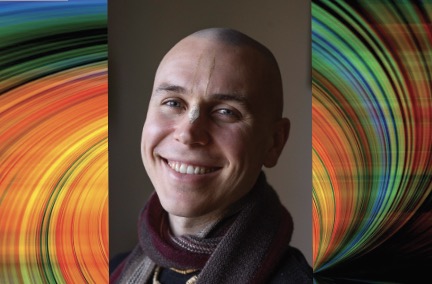
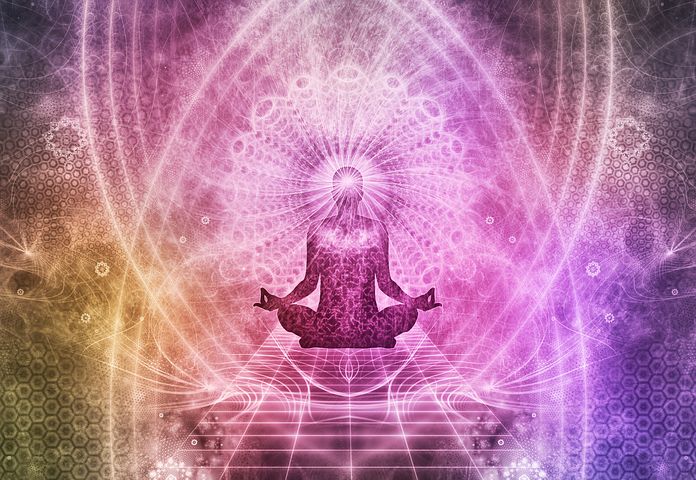
 Nalanie Chellaram, C-IAYT, BSYth, has been surrounded by spirituality for her whole life. She was raised by Hindu parents, educated at a Catholic school and studied philosophy in college. Nalanie began practicing the teaching of her Guru, Sri Swami Satchidananda in 1986 and continued to study the science of Yoga. She has been accredited by the Council of Teachers of the Satchidananda Ashram in Virginia, USA to teach Asanas, Pranayama and Meditation. She is also an accredited Teacher Trainer for Integral Yoga and a therapist under the British School of Yoga. She is the Chairwoman of the Integral Yoga Center in Gibraltar where she runs regular weekly satsangs, teacher training and counseling sessions. This Center is a registered Charity serving the community. Nalanie, who now lives in Spain, frequently lectures on the Science of Yoga, in Portugal, Spain, Germany, the United Kingdom, the USA and the Far East. She is the first of a new generation of spiritual teachers. Her particular upbringing and education has given her a special insight into both Hinduism and Christianity, inspired by her Beloved Guru.
Nalanie Chellaram, C-IAYT, BSYth, has been surrounded by spirituality for her whole life. She was raised by Hindu parents, educated at a Catholic school and studied philosophy in college. Nalanie began practicing the teaching of her Guru, Sri Swami Satchidananda in 1986 and continued to study the science of Yoga. She has been accredited by the Council of Teachers of the Satchidananda Ashram in Virginia, USA to teach Asanas, Pranayama and Meditation. She is also an accredited Teacher Trainer for Integral Yoga and a therapist under the British School of Yoga. She is the Chairwoman of the Integral Yoga Center in Gibraltar where she runs regular weekly satsangs, teacher training and counseling sessions. This Center is a registered Charity serving the community. Nalanie, who now lives in Spain, frequently lectures on the Science of Yoga, in Portugal, Spain, Germany, the United Kingdom, the USA and the Far East. She is the first of a new generation of spiritual teachers. Her particular upbringing and education has given her a special insight into both Hinduism and Christianity, inspired by her Beloved Guru.